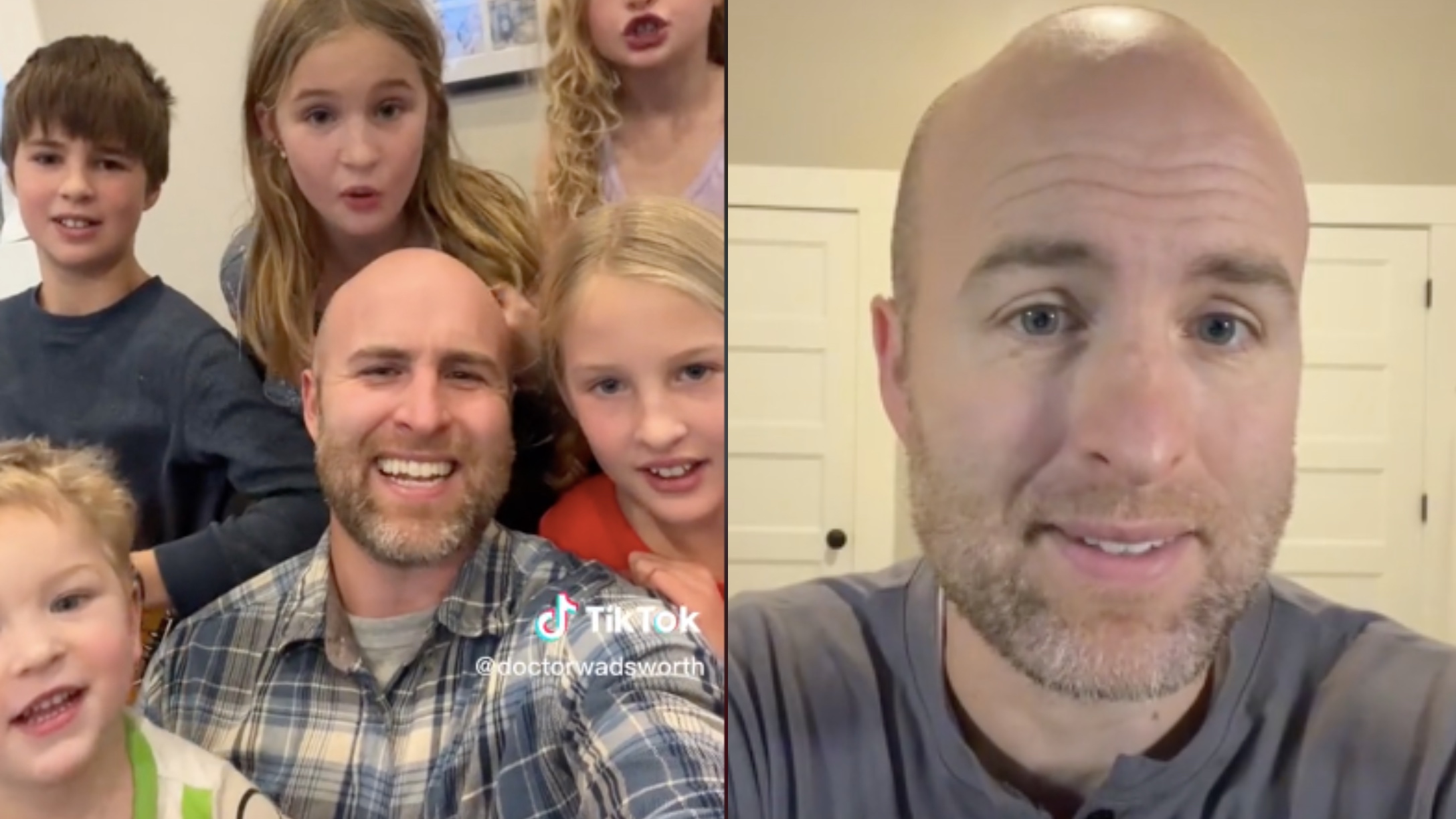
Mornings are notoriously stressful for parents with school-aged children, and the pressure is only compounded if you have several children you need to get out of the door. Between waking them from their sweet slumber, feeding them breakfast, getting them showered, dressed, and out of the door, it can be exhausting.
The truth of the matter is, in doing all of that, you’ve yet to do anything for yourself. One father (who also happens to be a psychiatrist) suggests that parents should alleviate that pressure from themselves. He says, we should let children be responsible for their own morning routines. In a recent TikTok video, Dr. Richard Wadsworth lists all of the things he doesn’t do for his children. “I did not wake them up. I did not get their breakfast ready for them …” he begins. He even says that he didn’t do their laundry.
Wadsworth says he's not rescuing his kids.
Wadsworth, who has seven children, says in the morning, he doesn’t speak to his children about what they “need to do.” Because at this point, they’ve been trained to know. After the lists of don’ts, he asks rhetorically, “Does this mean I’m a terrible parent because I’m not rescuing my kids?”
He said he used to parent that way, but he now feels he was doing a disservice to both his children and himself in the process.
Stepping in at every turn wasn't working for his children or him.
He said the hardest part of parenting is learning to stop interfering with our children. “If you do everything for them and you don’t allow them to have any responsibilities, they will never become responsible,” Wadsworth warns.
Not to mention taking on all of these tasks for his children was stressing him out as well. Today, he says his daughters understand that getting themselves up and ready for school is their responsibility, not their father’s.
There was a learning curve.
But it did take some time. Initially, Wadsworth said his daughters may have forgotten to do their laundry. When they came to him, saying that they didn’t have any clean clothes, he simply asked them, "Why haven’t you been doing your laundry?"
If one of his daughters happens to miss the bus and needs a ride to school, they have to pay for the chauffeur — even if it’s their own father. They have to complete chores in order to pay the cost. He says that’s only happened once.
He says children without responsibilities become adults who don't know how to manage them.
Wadsworth’s point is that it is vitally important that children experience the natural consequences of their actions — or inactions. While he does agree that you can offer empathy for their missteps, you should not take on responsibilities that are theirs.
Wadsworth believes children who are unable to wake themselves and be self-sufficient become teens and eventually adults who are unable to properly manage themselves and their responsibilities.
Still, he acknowledges this method may not work for every child.
Wadsworth says most of our children are more capable than we know or acknowledge. But because we do so much for them — taking on tasks they can complete themselves — they’re not able to show us, their parents, what they can do.
In the comments section, he acknowledged that this strategy may not be right for neurodivergent children and that not everything works for every child.
Commenters had various reactions to the video.
The comments section is a mixed bag. Some people had questions about what they should do with a child who oversleeps. Another wondered if the children do all of that in the morning, when do you get to spend time with them?
Others completely disagree with the approach.
“Absolutely NOT!” one user wrote. “That is why they become full of apathy, angry to the world and unhappy. They are kids and deserve to be one.”
Some asked Wadsworth to share what he does do for his children.
Adults whose parents subscribed to this philosophy shared how they interpret this model of parenting from someone who lived it.
“I was raised this way, and now my love language is 'acts of service' because of it … it has its pros, but it also has its cons,” one person wrote.
When someone asked what Wadsworth does do for his kids, he wrote, “I teach them. I love them. I play with them. I slowly help them learn life skills and help them feel confidence and joy in being responsible.”
Mic drop.




